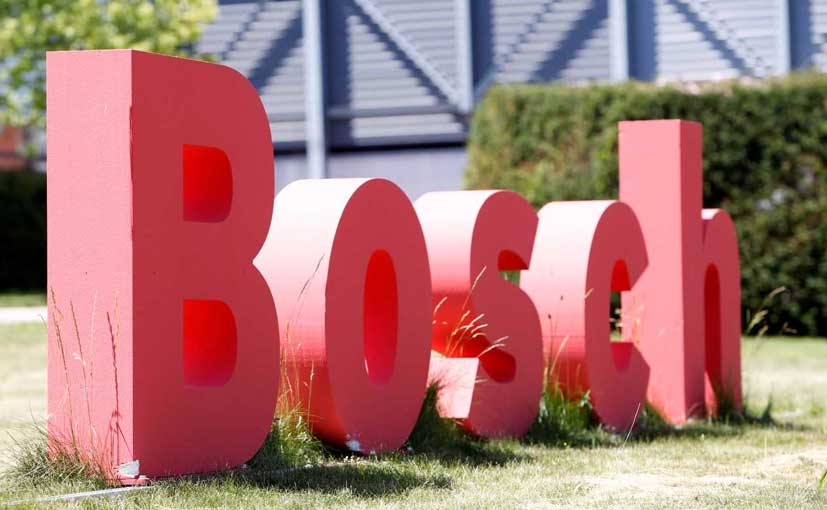Bosch, Shell, And Volkswagen Partner To Develop Renewable Petrol

Highlights
- Bosch, Shell and VW have developed renewable petrol called Blue Gasoline
- Blue Gasoline reduces 20% CO2 for every kilometre driven
- Bosch will debut Blue Gasoline at its company filling stations this month
Auto component maker Bosch, petroleum giant Shell, and automaker Volkswagen have partnered to create renewable gasoline or petrol. The low carbon petrol, called Blue Gasoline, contains up to 33 per cent renewable resources, ensuring a well-to-wheel reduction in carbon emissions of at least 20 per cent for every kilometre driven. Interestingly, this is not the first time that these there brand have partnered to create renewable automotive fuel. Earlier in 2018, these three brand collaborated to make renewable, low-carbon diesel fuel, called R33 Blue Diesel, which too came with 33 percent renewable resources.
The companies, which used the Volkswagen Golf VIII to test the fuel, claim that 1,000 units of the hatchback, powered by the company 1.5-litre TSI engine, could save more than 230 metric tons of CO2 per year, assuming an annual mileage of 10,000 kilometres each. The companies also claim that the newly developed renewable petrol complies with the EN 228/E10 standard, and even exceeds it in key parameters such as storage stability and boiling behaviour. Furthermore, given the fact that that fuel comes with high-quality additives, it will also keep the engine clean and protect it against corrosion. What this essentially means is that the Blue Gasoline can not only be distributed via the existing filling station network, but it also can be used in all new and existing vehicles.
Also Read: Shell To Trial Use Of Hydrogen Fuel Cells For Ships In Singapore

Bosch will debut Blue Gasoline at its company filling stations this month, starting with its Schwieberdingen site
Also Read: Volkswagen Virtus Review: 1.0 TSI And 1.5 TSI Automatics Driven
Commenting on the introduction of the new low-carbon petrol, Felix Balthasar, Manager Speciality Fuels at Shell said, "We're pleased to present this counterpart to R33 Blue Diesel. Our new fuel now also takes gasoline engines a big step forward in terms of sustainability." On the other hand, Sebastian Willmann, Head of Internal Combustion Engine Development at Volkswagen, said "Blue Gasoline is another building block in the effective reduction of CO2 emissions from the vehicle fleet. Blue Gasoline's high storage stability makes the fuel particularly suitable for use in plug-in hybrid vehicles. In the future, the expansion of the charging infrastructure and larger batteries will mean that these vehicles predominantly run on electrical power, and thus that fuel may remain in the fuel tank for longer periods of time."
Also Read: Volkswagen To Design Chips For Autonomous Vehicles, Says CEO
The 33 per cent renewable used to develop this fuel include biomass-based naphtha or ethanol certified by the International Sustainability and Carbon Certification (ISCC) system. The team says that naphtha can be sourced from either tall oil, which is a by-product in the production of pulp for paper, or from other residual and waste materials. Bosch will debut Blue Gasoline at its company filling stations this month, starting with its Schwieberdingen site, followed by a rollout to the company's filling stations at its Feuerbach and Hildesheim sites later this year. Shell, on the other hand, plans to use 'Blue Gasoline' petrol through certified offset arrangements, and the initial plan is to make the fuel available at regular filling stations over the course of the year, starting in Germany. The supply of conventional Super 95 E10 gasoline will then be gradually phased out.

Shell plans to initially make the fuel available at regular filling stations over the course of the year, starting in Germany
The companies believe that, in principle, the use of these fuels makes sense in all modes of transport,especially in those for which there is as yet no clear and economical path to electrification. In addition to ships and aircraft, this applies primarily to heavy goods vehicles and existing vehicles, but also to all the vehicles with internal-combustion engines or hybrid powertrains that are on the world's roads today or will be built in the coming decades.
Last Updated on May 12, 2021
Related Articles
Latest News
Popular Volkswagen Models
 Volkswagen VirtusEx-Showroom Price₹ 10.89 - 19.15 Lakh
Volkswagen VirtusEx-Showroom Price₹ 10.89 - 19.15 Lakh Volkswagen TiguanEx-Showroom Price₹ 35.17 Lakh
Volkswagen TiguanEx-Showroom Price₹ 35.17 Lakh Volkswagen TaigunEx-Showroom Price₹ 11.7 - 19.74 Lakh
Volkswagen TaigunEx-Showroom Price₹ 11.7 - 19.74 Lakh Volkswagen New TiguanEx-Showroom Price₹ 35.17 Lakh
Volkswagen New TiguanEx-Showroom Price₹ 35.17 Lakh Volkswagen Tiguan R-LineEx-Showroom Price₹ 49 Lakh
Volkswagen Tiguan R-LineEx-Showroom Price₹ 49 Lakh Volkswagen Virtus GTEx-Showroom Price₹ 17.48 - 19.35 Lakh
Volkswagen Virtus GTEx-Showroom Price₹ 17.48 - 19.35 Lakh














